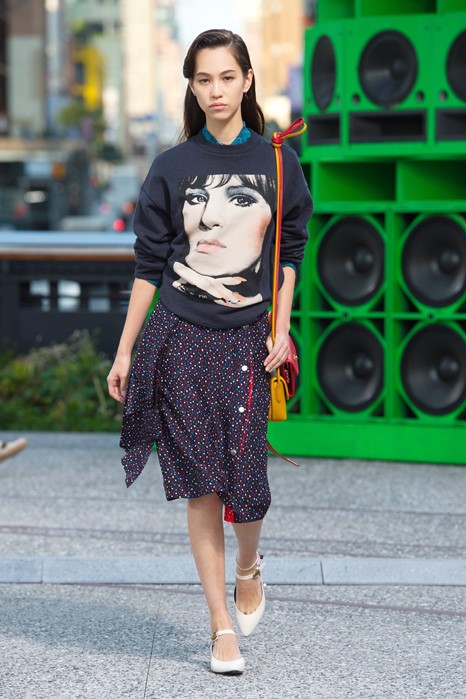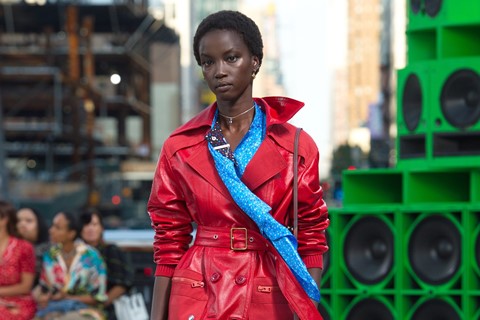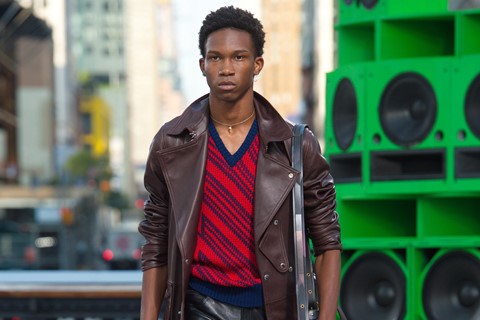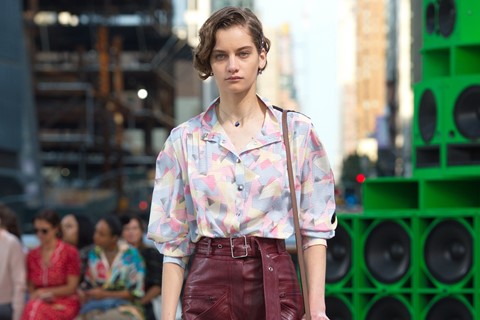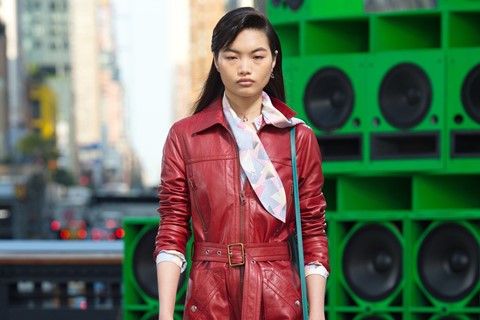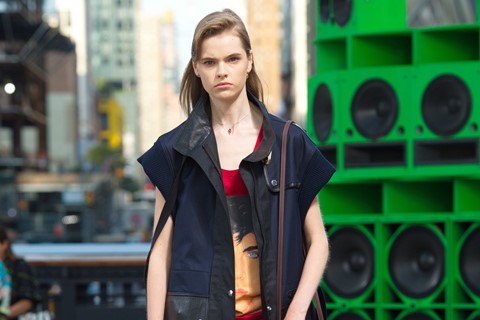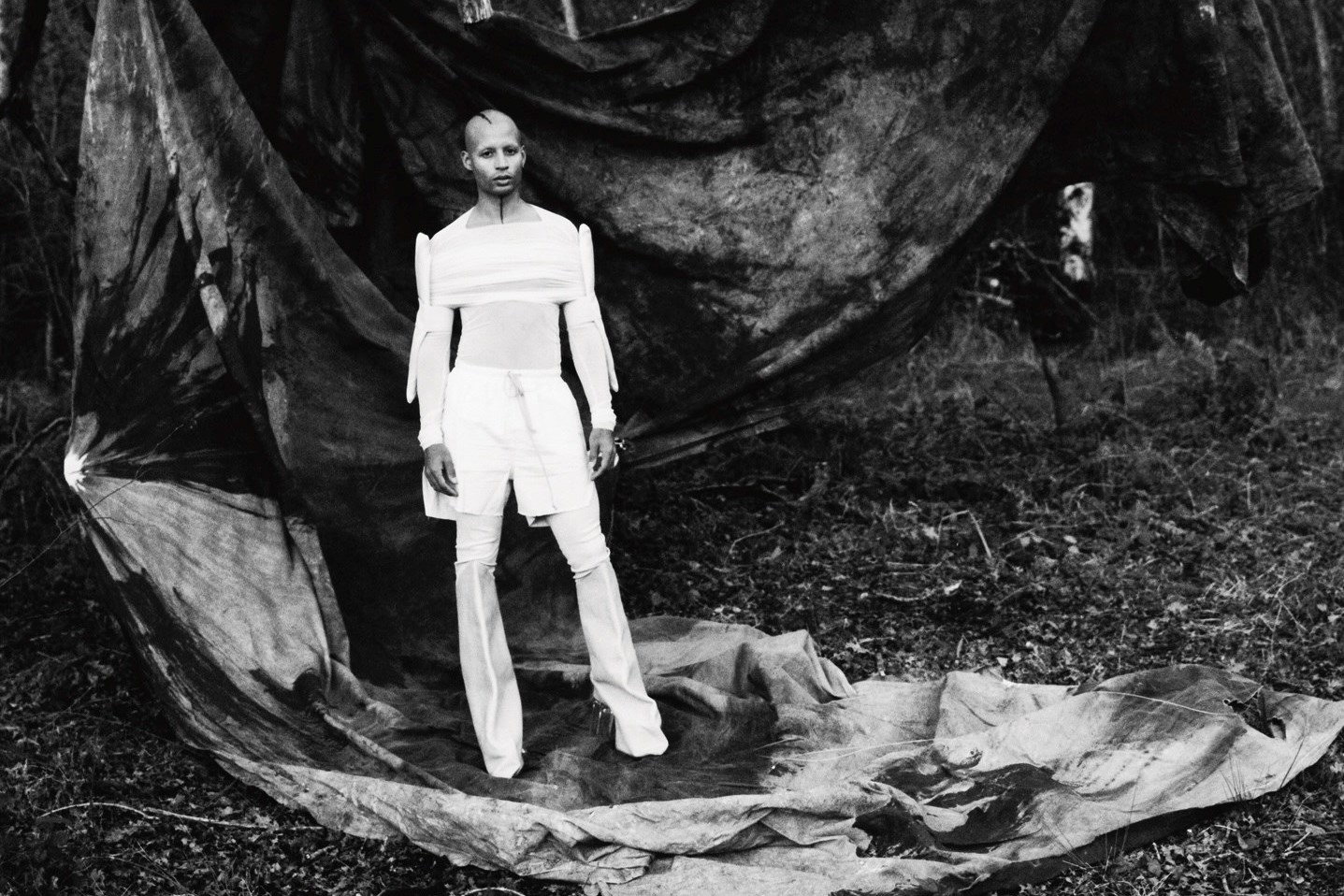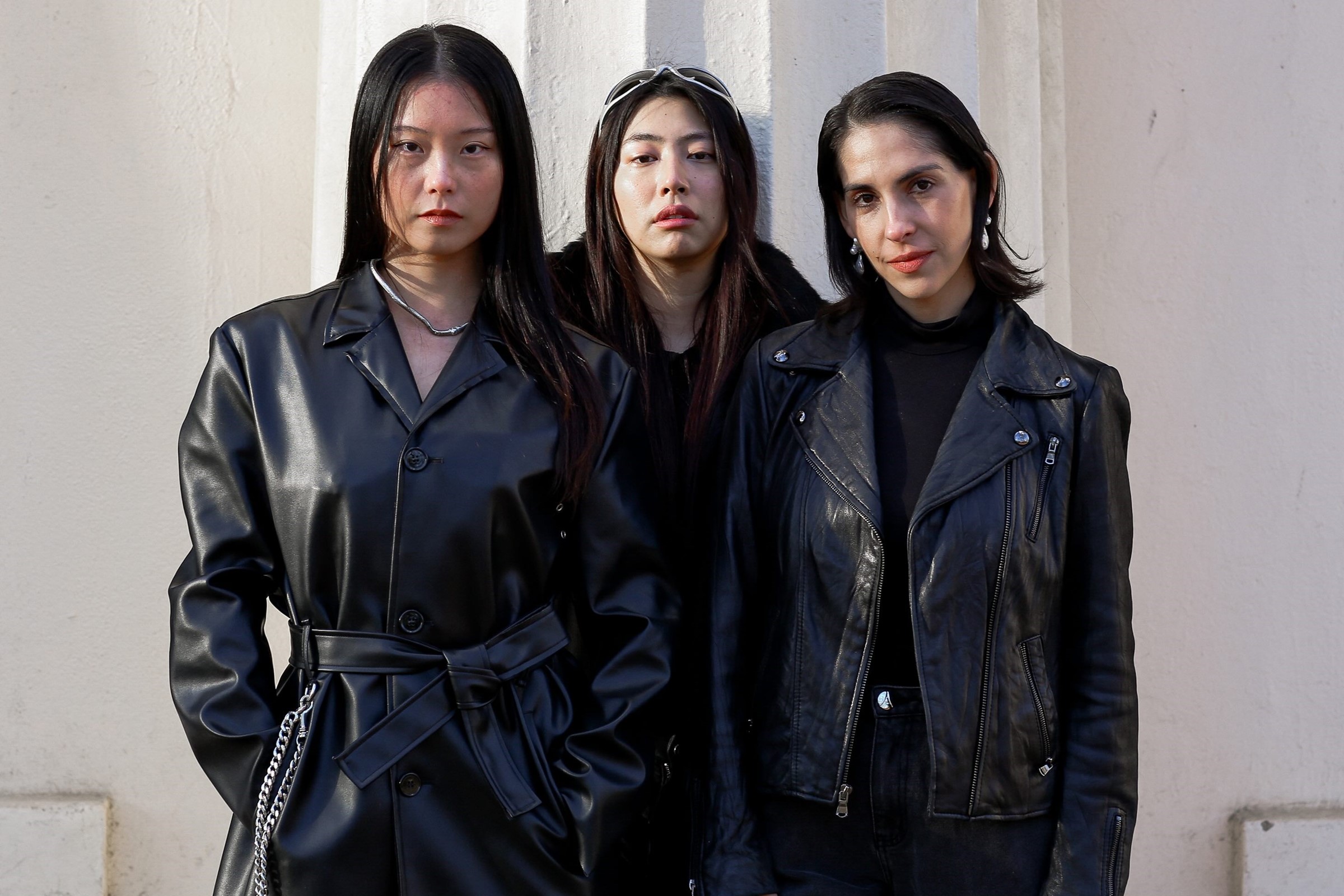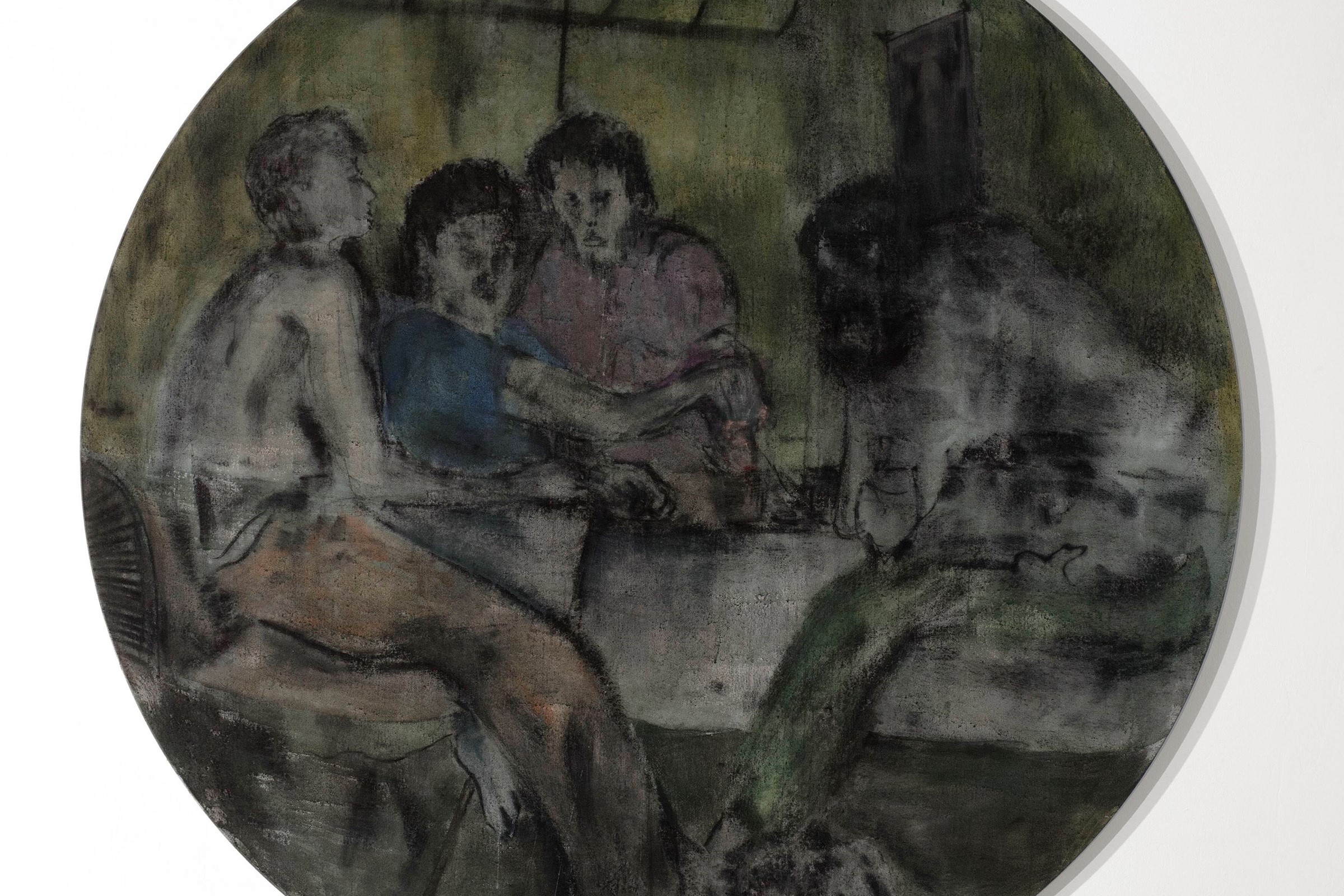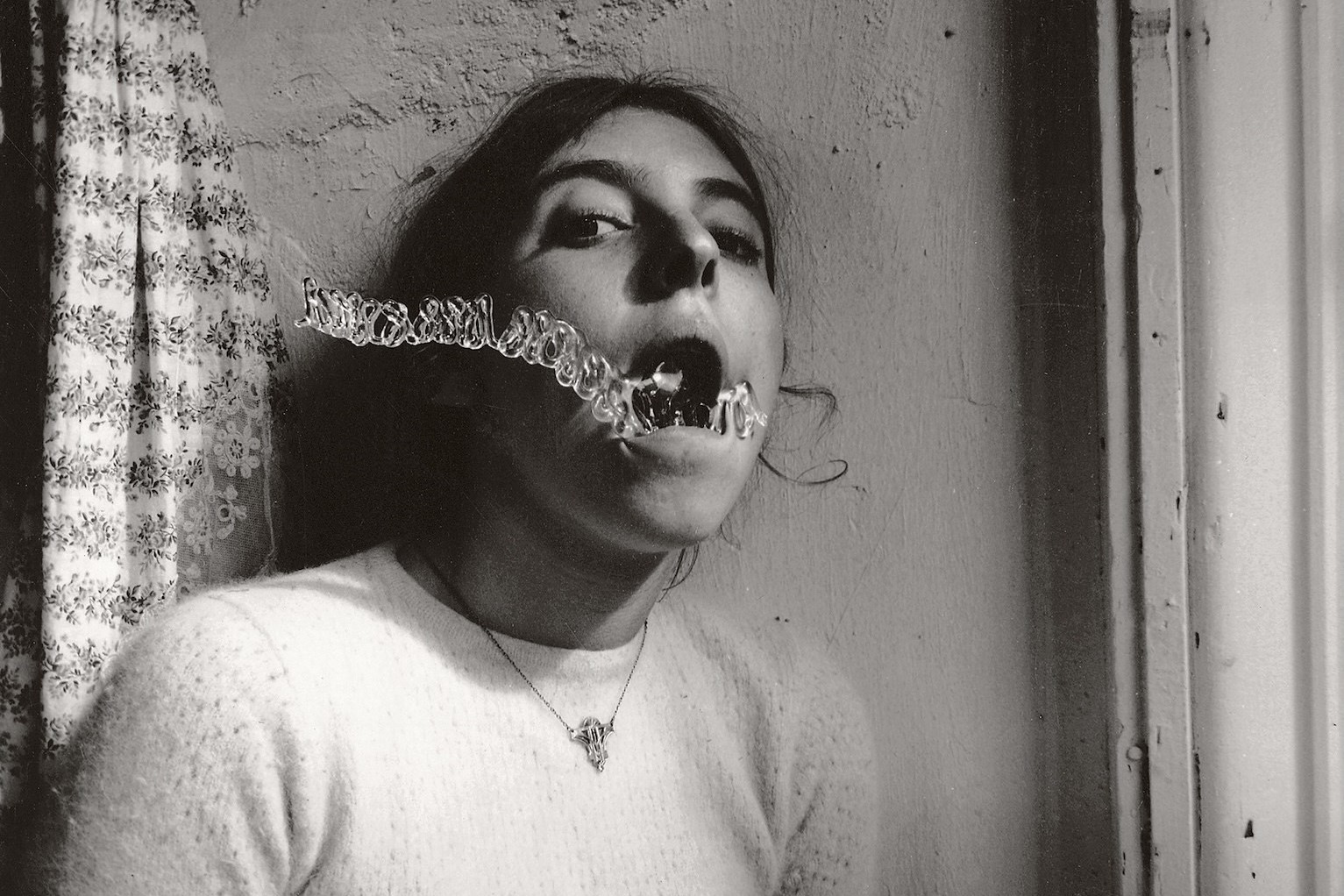Richard Bernstein created some of Interview magazine’s most iconic covers in the 1970s and 80s. In one of the most-Instagrammed moments of NYFW, his work appeared at Coach
Who? Richard Bernstein is best known for his two-decade career as the cover artist for Andy Warhol’s Interview magazine, where his flawless recreations of celebrities – Grace Jones, Madonna, Aretha Franklin, Diana Ross, and Mick Jagger among them – remain a colourful document of the era. Born in the Bronx and raised in Long Island, he returned to the city to study at the Pratt Institute in 1958 where he quickly became embedded in the burgeoning downtown art scene (later, he studied at Columbia University, where he received an MFA). Young, handsome and gay, he was part of circle of fellow queer artists, like Billy Name, Gerard Malanga, Danny Williams, and others.
After a brief spell in London during the infamous ‘Swinging Sixties’ he returned once again to New York, taking rooms at the Chelsea Hotel as it became the centre of the New York art scene (he would remain there until his death in 2002) and socialising at Warhol-stomping ground Max’s Kansas City; later, Studio 54. It was with photographer Peter Hujar that Bernstein began his career in magazines, working with him on Newspaper and Picture Newspaper, short-lived publications which documented the city’s underground queer scene (one iconic cover, created by Bernstein, featured a topless Candy Darling floating in the clouds).
What? In 1972, Bernstein met Warhol who asked him to join Interview, which had been founded two years prior. Then a burgeoning, DIY publication passed around at parties and art-world happenings, Bernstein’s covers elevated Interview into a Hollywood glossy with his vibrant covers, which featured the stars of the day. Reminiscent of Warhol’s own work – to this day, people are surprised to hear Warhol did not create the covers himself – Bernstein’s fantastical, colour-saturated portraits transformed celebrities into symbolic icons. “Richard Bernstein portrays stars. He celebrates their faces, he gives them larger-than-fiction size,” Paloma Picasso said of his work. “He puts wit into the beauties, fantasy into the rich, depth into the glamorous and adds instant patina to newcomers.”
“If you look at the movie stars of that era, they were all very people-next-door, and the movies were very real,” Roger Padilha and Mauricio Padilha, authors of Richard Bernstein Starmaker: Andy Warhol’s Cover Artist told Another Man last year. “Even if you look at pictures of the Oscars, like Jane Fonda wore a T-shirt. The movie stars had lost their glamour and that was something Andy and Richard really connected over. Interview was a place that helped restore that glamour. What Richard did when he came in was make current celebrities look like a Jean Harlow magazine cover in the 20s and 30s. He and Andy loved hyper-glamour.”
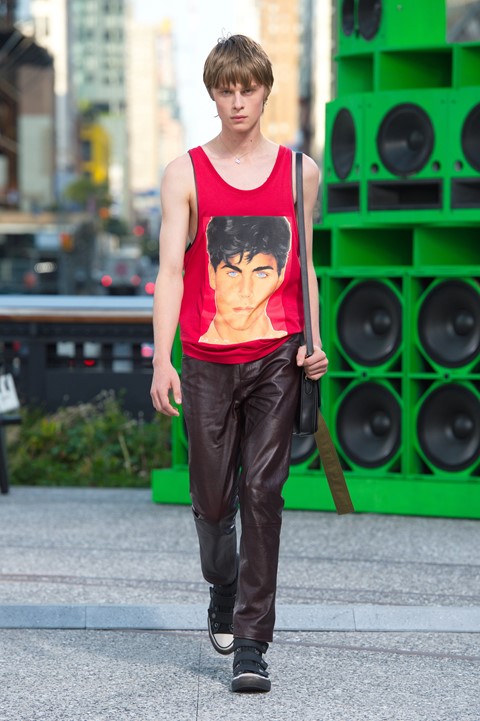
Why? This week in New York, British designer Stuart Vevers showed his latest collection for American fashion behemoth, Coach. Taking place at the city’s High Line park, the Human League soundtrack suggested Vevers had the 1980s on his mind – as did look number two, which was printed with Bernstein’s May 1984 cover of Interview, starring Rob Lowe. Further artworks from Bernstein appeared throughout: Michael J Fox’s trippy 1988 cover and an earlier 1969 portrait of Barbra Streisand (the latter providing the most Instagrammed moment of fashion week so far). All three, Vevers said, were idols of his growing up.
The aim, said Vevers, was to capture the energy of a changing era: “Change, urgency and raw, authentic energy. A bright collision of beginnings – past and present,” read the release. “Free spirits making their way across the High Line park... open to the infinite possibilities of a fresh decade.” In the collection itself, Vevers presented an exercise in 1980s-inflected downtown dressing: ruffled leather trench coats, puffed-sleeve shirt dresses and sized-up denim jackets, presented amid an array of colours, from cerise and emerald to cherry red.
